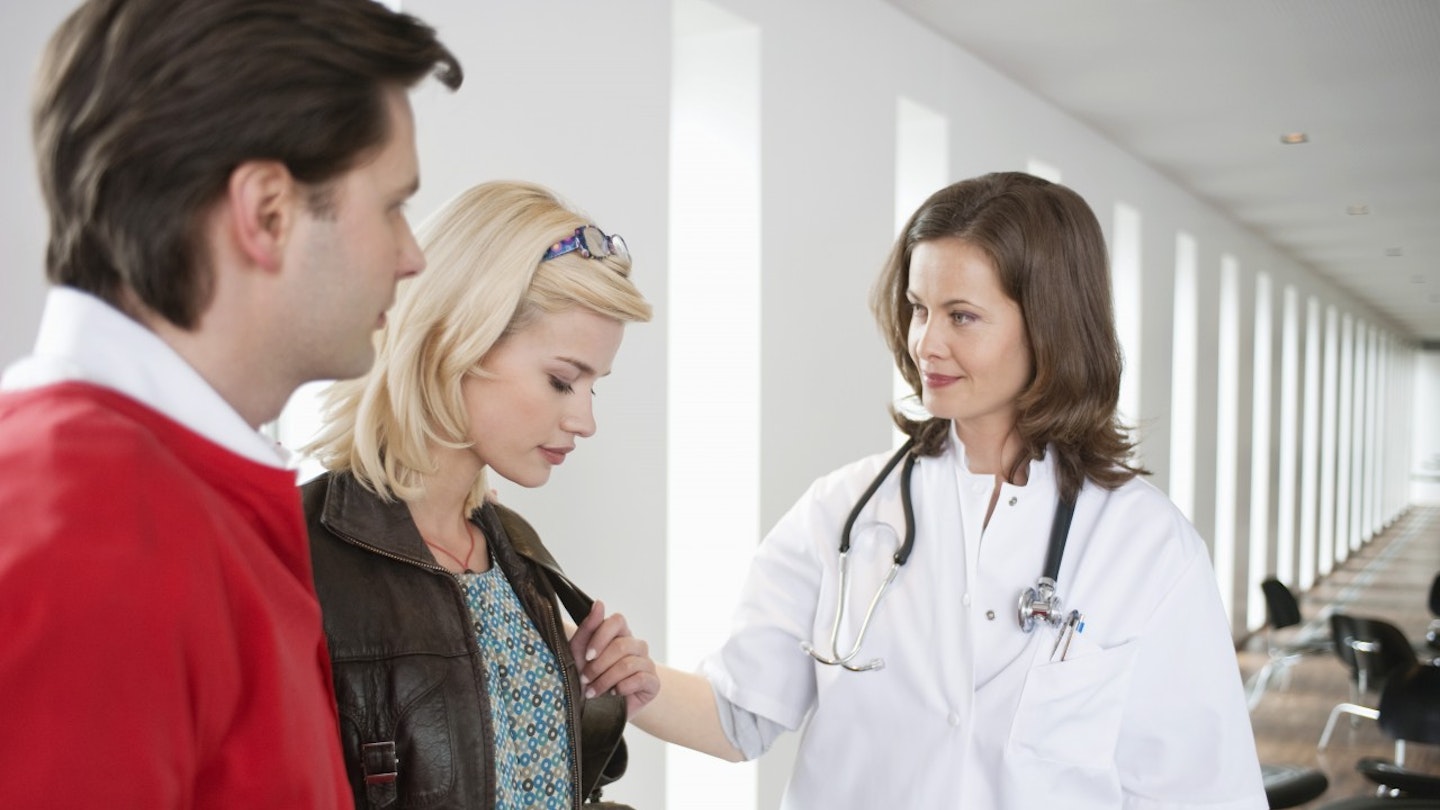If you understand what happens in Down’s syndrome testing, you’ll feel much happier with your decision to either have it or not.
Down’s syndrome – it’s a condition we all recognise and makes you think ‘could I?’ But, while there are tests available to find out in early pregnancy, the decision to go through with it is yours.
Down’s syndrome is a genetic condition that results in some level of learning disability and a range of physical characteristics. Of course you’ll love your baby with Down’s syndrome, but it’ll have a greater impact on your life than having a baby without the condition, as a Down’s baby will be more dependent on you for much longer.
What puts you at high chance of having a baby with Down’s syndrome?
An average of one in 1000 babies are born with the condition. ‘Most cases of babies born with Down’s syndrome are sporadic, however, there is an increased risk if a woman already has a child with the syndrome,’ says Teresa Walsh, a midwife childbirth educator at The Portland Hospital, London. ‘The risk also increases as the woman gets older.’
The chances of your baby suffering with Down’s syndrome doincrease with your age.
At the age of 20 the chances of your baby having Down’s syndrome is said to be one in 1500, at 25 the chances are said to increase to one in 1250, at 30 it’s one in 1000, at 35 it’s one in 400, at 40 it’s one in 100, and at 45 your chances have increased to one in 30.
How do they work out your risk of Down’s syndrome?
All pregnant women should be offered the screening test (alongside your 12-week scan) that estimates the chance of your baby having Down's syndrome. Regardless of your age, this test should be offered early in your pregnancy.
What are the risks of having the Down’s syndrome tests?
There is a small risk of complications with diagnostic tests, including miscarriage. Screening tests do not increase your risk of miscarriage. Your midwife or doctor will talk to you about increased risks from having the tests.
What is involved in the screening test for Down’s syndrome?
The screening test used for Down’s syndrome is known as the ‘combined test’. The first part is a blood test to check the levels of certain proteins and hormones.
A special type of ultrasound scan, known as nuchal translucency, is the second part of the combined test. This measures the pocket of fluid behind the baby’s neck. Babies with Down’s syndrome usually have more fluid in their neck than what is considered normal.
If your chance of carrying a baby with Down’s syndrome is found to be around one in 150, you will most likely be asked to have a diagnostic test.
What is a diagnostic test?
There are two ways you can have a diagnostic test for Down’s syndrome in your pregnancy.
The first option is chorionic villus sampling (CVS), which involves taking a small sample of the placenta and can be performed after you reach 10 weeks of pregnancy. The sample is taken either by passing a thin needle through the wall of your tummy, or by passing a small tube through your vagina and the neck of your womb.
Lab tests will tell you with almost 100 per cent certainty whether or not your baby has Down’s.
The other diagnostic test you may have is the amniocentesis, which involves taking a small sample of amniotic fluid and is usually carried out after week 15 of pregnancy, and can be carried out up until week 22.
Like CVS, the sample of amniotic fluid is taken by passing a needle through your tummy and womb. The sample is drawn out through a syringe. Choosing to have the Down’s test is at your discretion and there is plenty of support from your medical team to help answer all your questions and make the right decision for you.
A new blood test for Down’s Syndrome has been approved by the National Screening Committee. Women will now be offered the new non-invasive prenatal blood test instead of the normal amniocentesis.
